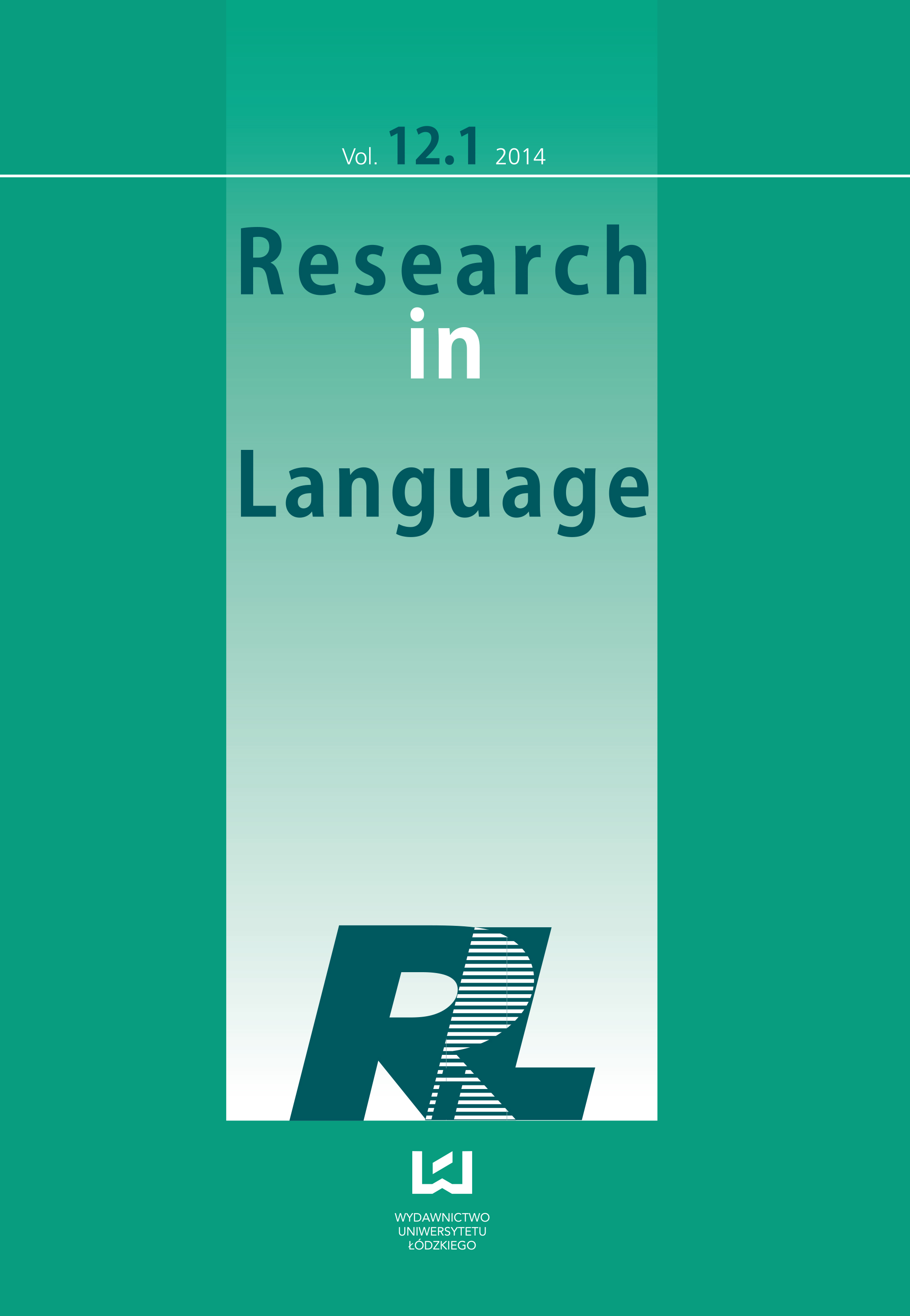Cognitive Metaphors of the Mind in "The Canterbury Tales"
DOI:
https://doi.org/10.2478/rela-2014-0011Keywords:
metaphor, metonymy, associations, culture-specific, universalAbstract
The paper presents an analysis of a number of cognitive metaphors pertaining to the concept of mind (e.g. sanity and insanity), heart, and fire. The study has been based on the text of Canterbury Tales by Geoffrey Chaucer. The paper contains a short theoretical introduction and a discussion of different linguistic and psychological approaches to issues related to figurative and literal, conventional language use. The analytical part focuses on the detailed contextual study of the cognitive metaphorical concepts. It is argued that many apparently similar concepts can evoke semantically conflicting metaphors, while concepts that appear to be mutually exclusive can sometimes evoke common associations and thereby similar metaphors.
References
Barcelona, Antonio (2000). “On the possibility of claiming a metaphoric motivation for a conceptual metaphor” In A. Barcelona (ed.), Metaphor and metonymy at the crossroads. A cognitive perspective (31-58). Berlin: Mouton de Gruyter
Google Scholar
Bordelajo, Barbara (ed.) (2003). Caxton’s Canterbury Tales Project: The British Library Copies. Birmingham: University of Birmingham
Google Scholar
Cruse, David Alan (2004). Meaning in language. An introduction to semantics and pragmatics. Oxford: Oxford University Press
Google Scholar
Lakoff George & Mark Johnson (1980). Metaphors we live by. Chicago: University of Chicago Press
Google Scholar
Langacker, Ronald (1990). Concept, image and symbol: the cognitive basis of grammar. Berlin: Mouton de Gruyter
Google Scholar
Radden, Gunter (2000). “How metonymic are metaphors.” In: A. Barcelona (ed.), Metaphor and metonymy at the cross-roads. A cognitive perspective (92-108). Berlin: Mouton de Gruyter
Google Scholar
Sweetser, Eve (1990). From etymology to pragmatics. Metaphorical and cultural aspects of semantic structure. Cambridge: Cambridge University Press
Google Scholar
Szwedek, Aleksander (2007). “Alternative theory of metaphorisation. In M. Fabiszak (ed.), Language and meaning (313-327). Frankfurt am Main: Peter Lang
Google Scholar
Traugott, Elisabeth (1989). “On the rise of epistemic meaning in English: an example of subjectification in semantic change.” Language, 65, 31-55
Google Scholar
Downloads
Published
How to Cite
Issue
Section
License

This work is licensed under a Creative Commons Attribution-NonCommercial-NoDerivatives 4.0 International License.










